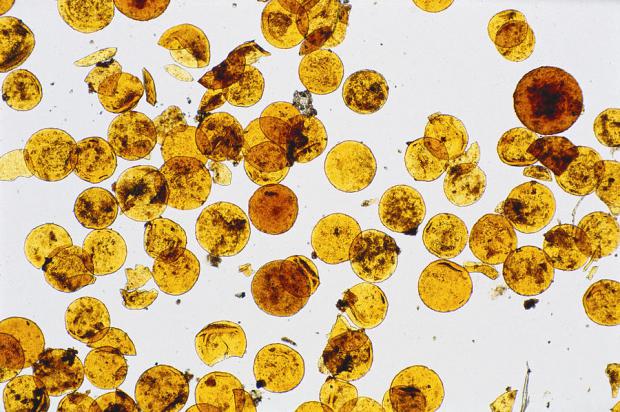
Breaking News
 Marine Corps Veteran: "No one wants to fight for Israel" - From - Beardy
Marine Corps Veteran: "No one wants to fight for Israel" - From - Beardy
 100% of Florida is covered by drought while 0% of California is in drought.
100% of Florida is covered by drought while 0% of California is in drought.
 Canadian Government Seals Vaccine Injury Records for 15 Years.
Canadian Government Seals Vaccine Injury Records for 15 Years.
Top Tech News
 US particle accelerators turn nuclear waste into electricity, cut radioactive life by 99.7%
US particle accelerators turn nuclear waste into electricity, cut radioactive life by 99.7%
 Blast Them: A Rutgers Scientist Uses Lasers to Kill Weeds
Blast Them: A Rutgers Scientist Uses Lasers to Kill Weeds
 H100 GPUs that cost $40,000 new are now selling for around $6,000 on eBay, an 85% drop.
H100 GPUs that cost $40,000 new are now selling for around $6,000 on eBay, an 85% drop.
 We finally know exactly why spider silk is stronger than steel.
We finally know exactly why spider silk is stronger than steel.
 She ran out of options at 12. Then her own cells came back to save her.
She ran out of options at 12. Then her own cells came back to save her.
 A cardiovascular revolution is silently unfolding in cardiac intervention labs.
A cardiovascular revolution is silently unfolding in cardiac intervention labs.
 DARPA chooses two to develop insect-size robots for complex jobs like disaster relief...
DARPA chooses two to develop insect-size robots for complex jobs like disaster relief...
 Multimaterial 3D printer builds fully functional electric motor from scratch in hours
Multimaterial 3D printer builds fully functional electric motor from scratch in hours
 WindRunner: The largest cargo aircraft ever to be built, capable of carrying six Chinooks
WindRunner: The largest cargo aircraft ever to be built, capable of carrying six Chinooks
Company Converts Digital Data into Strands of DNA Placed into Spores...

Christian, the Ice Age Farmer, reveals that Aanika is a company that recently introduced a genetically modified organism probiotic spore that can be misted onto dry goods or added to liquid products so that the spores can be traced. It can provide a digital ID for anything, including food. The spores added to food will be tracked from the field to the store, to your stomach, and finally to the smart sewers. Vishaal Bhuyan, the founder of Aanika, says spores are used because they can withstand high temperatures and UV light. Christian pointed out that Bhuyan did not answer the question about testing his product on animals and, instead, just started talking about climate change. The venture capital group SOSV that conducted the video conversation invests heavily in "post animal" meat products and replacement agriculture, including breast milk. Another similar company, Phylagen, is working on using microscopic dust technology for tracking. The video is a glimpse into a surveillance system for a post-human and post-animal economy. -GEG

 No White Lines
No White Lines RNA Crop Spray: Should We Be Worried?
RNA Crop Spray: Should We Be Worried?

